Click on any link in the table of content below or scroll.
- Working experience
- [2025 - now] Co-founder @ proper.gr
- [2017 - 2025] CPO @ DeliveryHero Greece (efood, foody)
- [2015 · 2yrs] Marketing @ efood
- [2015 · 6m] Founder @ Syndesis
- [2014 · 1yr] Founder @ Chipple
- [2014 · 6m] Organizer @ Startupbus (🇬🇷)
- [2013 · 1,5yr] Early days: Marketing @ customedialabs
- Public Speaking
- Free time · Advisor
- [Now · (AI) RAG practitioner]
- [2025 · 1yr] Educational card game: PRIORITY
- [2023 · 1yr] Proper.gr
- [2020 · 2yrs] Timezok.com
- [2019 · 3yrs] instacar.gr
- Volunteering
- [2021 · 1yr] ThatFeeling (Covid-19)
- [2014 · 4yrs] Prosfero (Food)
Working experience
[2025 - now] Co-founder @ proper.gr
As Co-Founder and Co-CEO of Proper.gr, I am driving the development of a technology-first company that puts AI and automation at the core of building management operations. My role spans strategy, execution, and team-building, with a strong emphasis on transforming raw operational data into competitive advantage. This position reflects my commitment to entrepreneurship and my belief that the future of operations will be redefined by technology-led leadership.
[2017 - 2025] CPO @ DeliveryHero Greece (efood, foody)
I establish and scale the Product team at Delivery Hero (GR entity). My journey within the team started as Growth Product Manager and finished as CPO (last 5 years). Our team oversees the platforms of efood (🇬🇷) and foody (🇨🇾).
We began with a team of three individuals, including a Product manager, Product owner, and Product designer. Over the course of three years, we successfully expanded and transformed this small team into a modern, full-stack Product team. Presently, our team comprises:
👨💻 Product managers,
👩💻 Product owners,
🧑💻 Product analysts,
🧑💻 Product designers
👩💻 BI analysts.
We oversee a comprehensive tech platform that includes various components such as backend systems, 3rd party tools, mobile applications, and web application services. Our ultimate goal is to deliver an amazing online ordering experience. We aim to encourage users to adopt the habit of ordering food, coffee, groceries, and more online by offering a seamless and user-friendly interface. Simultaneously, we strive to empower our partners with advanced technological capabilities, enabling them to provide exceptional services and maximize their value proposition.
In 2020, I was promoted to the role of Chief Product Officer, where my primary responsibilities include:
🚀 Cultivating a culture that emphasizes data-driven decision-making and a strong focus on product development.
✅️ Defining and shaping the product strategy, as well as establishing an effective prioritization process.
✅️ Taking the lead in discovering and developing consumer products to meet their needs and preferences.
Switching from a marketing role to product management is an intriguing journey, and I highly recommend it for all ambitious marketers out there. Product management is closely intertwined with business strategy, at least in online delivery industry. To cultivate a strong product sense, it is essential to develop a solid understanding of business principles.
Here is one of the books that has greatly influenced my managerial style. "Principles" introduced me to the concept of meritocracy, which, although is challenging to implement, can serve as a guiding principle for maintaining integrity.
I believe that integrity is one of the most crucial skills for effective management.
Furthermore, the skill of prioritization, which is crucial when it comes to managing technical resources, is a skill that every capable performance marketer should already possess. As a performance marketer, you are accustomed to handling a limited and valuable company resource: the marketing budget. Therefore, applying the same prioritization mindset to technical resources is a natural extension of your existing capabilities.
Shreyas is a renowned Product leader who primarily focuses on organizational Product management. His insights are highly valuable for every Product Manager.
Lenny offers a weekly advice column covering topics such as product management, growth, and navigating workplace challenges. In my opinion, it is one of the best educational resources available for Product Managers.
Brian used to provide in-depth essays on growth and user acquisition, which have been featured in Forbes. His content can help you build a robust growth strategy. Currently, he leads the educational startup called Reforge.
Featured article about conversion rate in DH global blog.
Featured efood case study regarding how we use LottieFiles on our platform.
Featured article on how to build high-performing Product teams.
[2015 · 2yrs] Marketing @ efood
In 2015, I relocated to Athens and joined the Marketing department at efood. At that time, efood had a small yet highly skilled team comprising six individuals responsible for both performance and branding teams. My primary area of focus revolved around optimizing the performance of "push" marketing channels, including Facebook ads, programmatic advertising, YouTube ads, and more. Additionally, I played a key role in managing customer relationship management (CRM) activities to enhance customer engagement and retention.
One of my key initiatives involved developing and implementing a comprehensive plan that included a communication systems map for each buyer persona and their respective intentions across all marketing channels. This involved creating a strategic framework to ensure that we serve the right message, to the right user, at the right time. effective messaging and targeting for different customer segments. By mapping out the communication systems, we were able to align our marketing efforts with the specific needs, preferences, and intentions of each buyer persona. This approach allowed us to deliver tailored and impactful messaging across various marketing channels, optimizing our communication strategies for maximum engagement and conversion.
The first Greek case study in Google Think ever.
The case study was about efood’s YouTube channel and its strategy that included a mix of performance, awareness and user segmentation initiatives.
By using this strategy we managed to develop one of the biggest branded YouTube channels in Greece.
An interview to Startup Pirate with Alex Alexakis regarding Growth & Marketing fundamentals.
- Lessons & Growth hacks,
- Experimentation & Growth,
- Most important skill for growth professional.
After a year at efood, I received a promotion to the position of Head of Performance Marketing. This role encompassed the overall responsibility for managing the entire suite of advertising performance, which involved handling a substantial budget of millions of euros. In addition to overseeing the financial aspects, my new role also involved managerial duties, as I was entrusted with leading a team of experienced professionals.
As the Head of Performance Marketing, my primary objective was to optimize the advertising campaigns to achieve maximum results within the allocated budget. This required strategic planning, data analysis, and continuous optimization to drive efficient and effective performance across various marketing channels.
Furthermore, with the managerial responsibilities that emerged, I had the privilege of leading a team of skilled professionals. This involved guiding and mentoring team members, fostering collaboration, and ensuring the alignment of their efforts with the overall marketing objectives. By leveraging their expertise and facilitating their growth, we were able to drive the success of the performance marketing initiatives while nurturing a strong and cohesive team dynamic.
One of my most significant managerial accomplishments was spearheading the development of an Agile framework for the entire Marketing department. Initially, we adopted Scrum in 2015, but as our team expanded, we recognized the need to adapt our approach or revert to traditional waterfall methods.
To address this challenge, we created a new framework called Nero, derived from the Greek word "νερό" (meaning "water"), symbolizing its fluidity and practicality. Nero combines principles and tools from Scrum, Kanban, Scrum Nexus, and even Waterfall methods. This hybrid framework enabled us to effectively manage our growing team while maintaining agility and adaptability.
With comprehensive documentation in place, and after witnessing positive results, we realized the value of sharing our process with the wider marketing community. Consequently, we decided to publish a book, available on Amazon, detailing our Nero framework. This resource is especially beneficial for marketers in large organizations undergoing transformation or marketers in startups seeking to enhance productivity and scale their teams.
Whether you are a marketer in need of transformation in a big organization or a marketer in a startup looking to boost productivity and manage team growth, this book offers practical insights and strategies to support your journey.
[2015 · 6m] Founder @ Syndesis
During my time in Larissa, my friend Konstantinos Malaviezos and I founded Syndesis to address the challenge of career uncertainty among young individuals. Our aim was to create a service that utilized a job orientation test to help students identify their ideal profession.
The concept behind Syndesis was simple: to develop a service that allowed students to take a job orientation test in order to identify their most suitable profession. Once the ideal job was determined, our approach involved arranging two interviews with practicing professionals in that field. If a student expressed interest in becoming a lawyer, for example, we would connect them with professional lawyers.
These interviews provided valuable opportunities for students to ask questions, gain insights into the legal profession, and understand the typical schedules and demands of lawyers. Our goal was to facilitate meaningful conversations that would equip students with firsthand information to make informed decisions about their career paths.

Although we secured initial funding and gained some traction, we struggled to find the right product-market fit. Despite our efforts, we were unable to fully align our offering with the needs of our target audience. After six months, we made the tough decision to discontinue the business.
Syndesis continued for a year or more but ultimately closed due to the lack of a strong product-market fit.
While the closure was disappointing, we acknowledge that it's common for startups to face challenges in finding the right fit in a competitive market. We consider the experience gained from Syndesis as valuable lessons for future endeavors. We believe that these lessons can contribute to the development of innovative solutions that effectively address market needs.
[2014 · 1yr] Founder @ Chipple
In 2014, three of my friends and I embarked on an entrepreneurial venture and founded our own food startup called Chipple. Our business concept had two main components. Firstly, we aimed to introduce sweet fried apple chips as a healthier alternative to traditional potato chips in the snack industry. Secondly, we wanted to provide vacuum-sealed fresh fruits, primarily targeting kiosks and school/hospital canteens, to offer a healthy choice for consumers.
To turn our business idea into reality, we developed a comprehensive and realistic business plan. We decided to participate in a national competition called Re-inspire Greece, with the hope of securing the necessary funding to launch our business.
To our delight, we finished in third place, securing a 50K funding round. At that time, I believed this would be the biggest and perhaps the only chance for our success.On the surface, everything seemed to be in place for our startup.
Specifically:
✅ We were a young and talented team with great potential.
✅ We had secured the necessary funding to kickstart our business.
✅ We had established sales channels, thanks to a collaboration with a large Greek company, who was ready to purchase our products.
However, only six months later, we made the difficult decision to quit without even launching our business. As a team, we came to the realization that bringing our products to market was more challenging than anticipated. The hurdles and obstacles we faced seemed insurmountable, and collectively, we made the choice to return to our 9-to-5 jobs. Though our entrepreneurial journey was relatively short-lived, it provided me with a valuable lesson that starting a business may appear promising on paper, but the reality can be vastly different.

[2014 · 6m] Organizer @ Startupbus (🇬🇷)
I took on a new and different adventure in the events industry as one of the national producers for the Greek team in StartupBus, a prestigious European startup competition held in Vienna.
Our goal was, each team that participated to launch a software service within 72 hours and compete against teams from six other European countries for a chance to participate in a San Francisco incubator. After traveling through eight countries in one week, a Greek team emerged victorious, securing the grand prize.
This experience showcased the talent and innovation of Greek startups on an international stage, reinforcing the potential of Greek entrepreneurship.
[2013 · 1,5yr] Early days: Marketing @ customedialabs
I began my career in 2013 as a fresh business administration graduate. I seized an opportunity to work remotely as an associate marketing manager for a US-based agency called customedialabs. This opportunity arose through the network and skills I developed from a voluntary program I initiated in Larissa called Prosfero.
At the start of my career, my primary hard skills revolved around Google Analytics and copywriting. Fortunately, these skills have remained my favorites and continue to be relevant to my work. I still utilize Google Analytics extensively in my day-to-day tasks, and I am actively engaged in writing. In today's digital age, writing has become an essential skill for everyone, as we devote significant time to crafting specifications, emails, chat messages, and taking notes. Therefore, copywriting skills have become indispensable for individuals in various roles and industries.
One of the books that helped me a lot as professional was “Linchpin” by Seth Godin. It taught me 2 lessons:
- No one is irreplaceable
- Since no one is irreplaceable, your only choice to succeed is to become indispensable
At customedialabs, I worked with big clients mostly in the Pharmaceutical industry, providing analytics insights and copywriting services. One of my highlights was an IMA award for a project that I participated in. This was my introduction to the Marketing industry and although I didn’t have the best start, I realized that this industry has all the challenges and opportunities that I am interested in.
A couple of awards we won with projects that I was involved in:




Public Speaking
I occasionally share stories and knowledge as a speaker in conferences and other events such as TEDx and Product Marketing meetups.
Free time · Advisor
[Now · (AI) RAG practitioner]
In summer 2023, I decided that it is time to start developing skills around AI, specifically RAG. Langchain is an open source framework in Python language that allow users to deploy LLM applications easily, using it’s built-in libraries and integrations with other services.
In case you are interested in as well, here are some courses I highly recommend: Short course , Bootcamp , for senior PMs.
Lastly, here are a couple of applications that I created on my own. I used streamlit, langchain and openai to develop them and I have to say that it was a fun process. Feel free to check them and send me your feedback.
Chatbot on my personal blog content:
QnA on book I wrote about Agile Marketing:

[2025 · 1yr] Educational card game: PRIORITY
I'm excited to announce that I’ve created a card game specifically designed for Product Managers and Developers to sharpen their prioritization skills. This game challenges players to make strategic decisions in a tech startup environment, balancing resource management, product development, and customer satisfaction.
The game is both educational and engaging, offering a fun way to train critical decision-making skills that are essential in today’s fast-paced tech world. I’m looking forward to publishing it soon—stay tuned for more details!
[2023 · 1yr] Proper.gr
Proper.gr is a proptech SaaS (Software as a Service) platform that specializes in apartment building management. With Proper.gr, users have the convenience of paying their apartment's shared expenses (κοινόχρηστα έξοδα) securely online. The platform also enables users to track their expenses on a monthly basis, providing a transparent overview of their financial obligations.
In addition to the payment functionality, Proper.gr offers valuable services for building management. Users can participate in votes and receive important announcements related to their building, facilitating effective communication among residents.

Furthermore, the platform provides a hassle-free experience by allowing users to easily book top-notch services for their apartments and buildings. This feature ensures convenient access to a range of additional services that enhance the living experience.
Proper.gr streamlines the apartment building management process, making it simpler, more efficient, and transparent for residents. By combining online payment capabilities, expense tracking, essential building services, and easy booking options, Proper.gr empowers users to effectively manage their apartment and enjoy a seamless living experience.
[2020 · 2yrs] Timezok.com
Timezok is a B2B side project service that I co-developed with Paris Kasidiaris. Our aim in creating Timezok was to address the common challenge of tracking and understanding the amount of time spent on meetings. We recognized that meetings can often be seen as a burdensome and unavoidable aspect of work in many companies worldwide.
With Timezok, we provide a solution that allows individuals to easily track and analyze the hours spent on meetings. This enables users to gain insights into the actual time investment and associated costs of meetings for their company.

By joining Timezok, users can access important metrics and data related to their meeting activities, helping them understand the impact and value of these interactions. Currently, Timezok is in its beta version and offers these services for free.
If you have ever wondered how many hours you spend on meetings each week and how much they cost your company, Timezok can provide the answers. Join our platform and take advantage of the valuable insights we offer to enhance your understanding and optimization of meeting time.
[2019 · 3yrs] instacar.gr
instacar is a unique Car-as-a-Service (CaaS) platform, offering a flexible approach to car leasing through monthly subscriptions. It eliminates the need for fixed contracts and rigid acceptance criteria, providing users with a hassle-free way to lease a car.
What sets instacar apart is its online booking flow, which allows users to lease cars 24/7. It is the only Software-as-a-Service (SaaS) platform in Greece that offers this convenient online booking process.

Recently, instacar announced a new funding round with a primary focus on enhancing the user experience in mobility. The funding aims to support the development of best-in-class features that will further improve the overall experience for instacar users.
With its commitment to innovation and user-centricity, instacar is dedicated to providing a seamless and convenient car leasing solution, revolutionizing the mobility industry in Greece.
Volunteering
[2021 · 1yr] ThatFeeling (Covid-19)
During the challenging era of the COVID-19 pandemic, myself, Ioanna Fotopoulou, and Nastazia Tambakopoulou collaborated with the Hellenic Anti-cancer Organization to create impactful campaigns supporting those in need. Our initiative, known as ThatFeeling, involved partnering with Greek influencers to offer unique experiences through the sale of lottery tickets.
With each campaign, users had the opportunity to purchase lottery tickets, and at the end of the contest, a winner was randomly selected to enjoy the special experience. Through the collaboration with 10 popular influencers, we successfully raised a significant amount of money to procure masks and medical equipment.
The main objective of ThatFeeling was to combine the power of influencer collaborations and the generosity of individuals to support important causes during the pandemic. By engaging the community through these campaigns, we not only provided memorable experiences to the lucky winners but also contributed to the Hellenic Anti-cancer Organization's efforts in acquiring essential resources to combat the challenges posed by COVID-19.
[2014 · 4yrs] Prosfero (Food)
One of my most significant initiatives is Prosfero. The idea for Prosfero originated during my time in the army, where I witnessed a significant amount of food being wasted daily due to the limitations of the existing process. This experience motivated me to take action. After a year, I returned to the camp as a volunteer, collecting the surplus food and redistributing it to those in need.
Prosfero began as a local initiative in Larisa, where we successfully collected approximately 2 tons of unused food each month. The collected food was then utilized to support social meals for people facing food insecurity.
As the initiative grew, Prosfero evolved into an online platform-aggregator in Athens. The platform aimed to promote and connect social organizations throughout Greece, fostering collaboration and expanding their reach. This transformation allowed Prosfero to have a broader impact by connecting surplus resources with those in need on a larger scale.

The success of Prosfero was recognized when it was awarded as one of the most innovative social programs in 2013 by the Angelopoulos Foundation and the Clinton Global Initiative University in St. Louis, USA. This recognition further highlighted the significance and effectiveness of Prosfero in addressing food waste and supporting people in need.
The journey of Prosfero exemplifies the power of grassroots initiatives and the potential for innovation in addressing social challenges. By repurposing surplus resources and fostering collaboration, Prosfero has made a meaningful difference in the lives of vulnerable individuals and communities across Greece.
Since you finished reading my bio, you can find all my blog posts below:
![[Notes] PM Habits Seminar: Get Shit Done by Shreyas Doshi](https://images.unsplash.com/photo-1517842645767-c639042777db?ixlib=rb-4.0.3&q=90&fm=jpg&crop=entropy&cs=srgb&w=1920)
![[Step by step] How to build a chatbot using openAI, Langchain & Streamlit.](https://images.unsplash.com/40/OSASuBX1SGu4kb3ozvne_IMG_1088.jpg?ixlib=rb-4.0.3&q=90&fm=jpg&crop=entropy&cs=srgb&w=1920)
![[Review]](https://images.unsplash.com/photo-1633613286991-611fe299c4be?ixlib=rb-4.0.3&q=90&fm=jpg&crop=entropy&cs=srgb&w=1920)















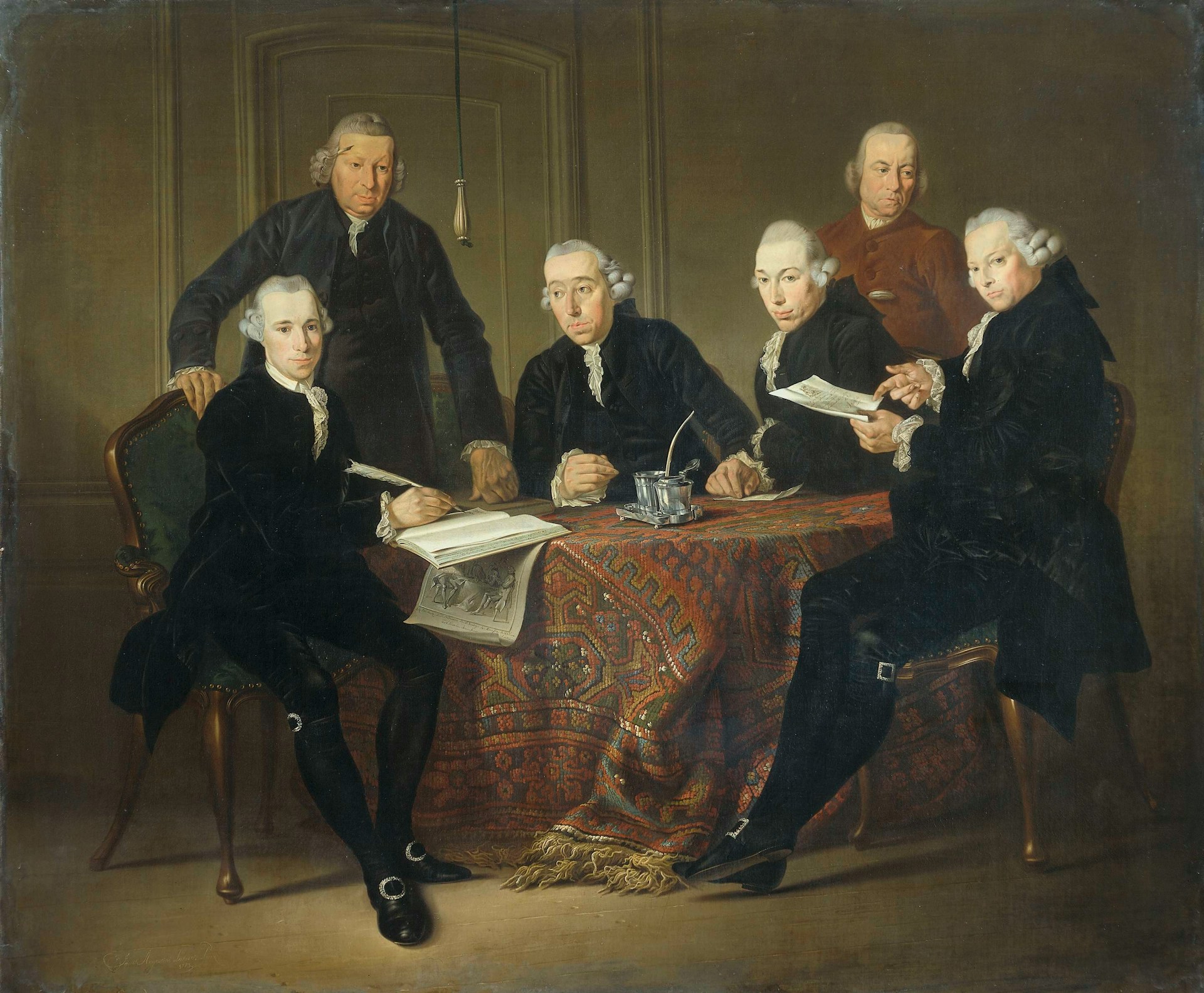









![[Hot take] End of Software?](https://images.unsplash.com/photo-1495055154266-57bbdeada43e?ixlib=rb-4.0.3&q=90&fm=jpg&crop=entropy&cs=srgb&w=1920)

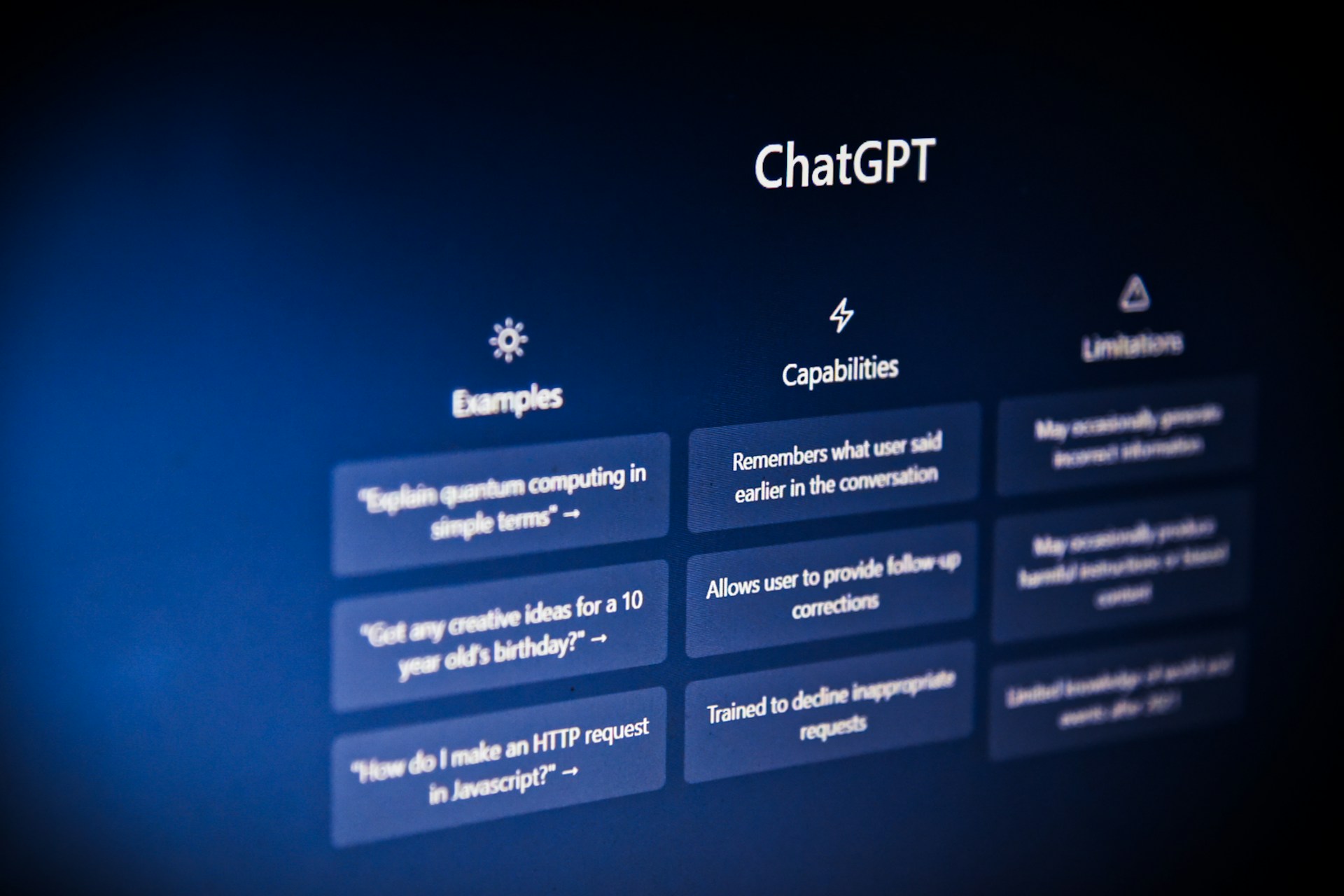















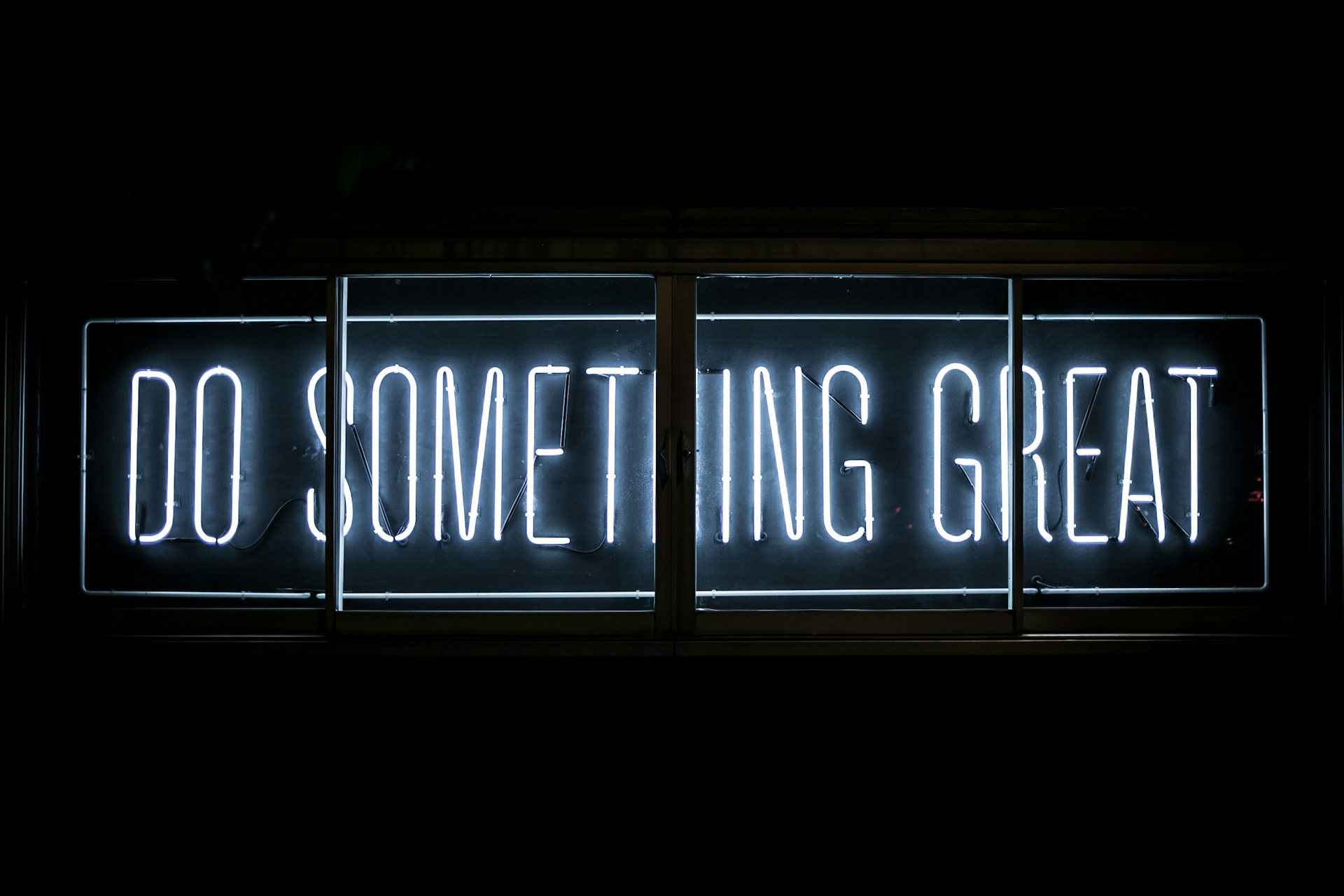







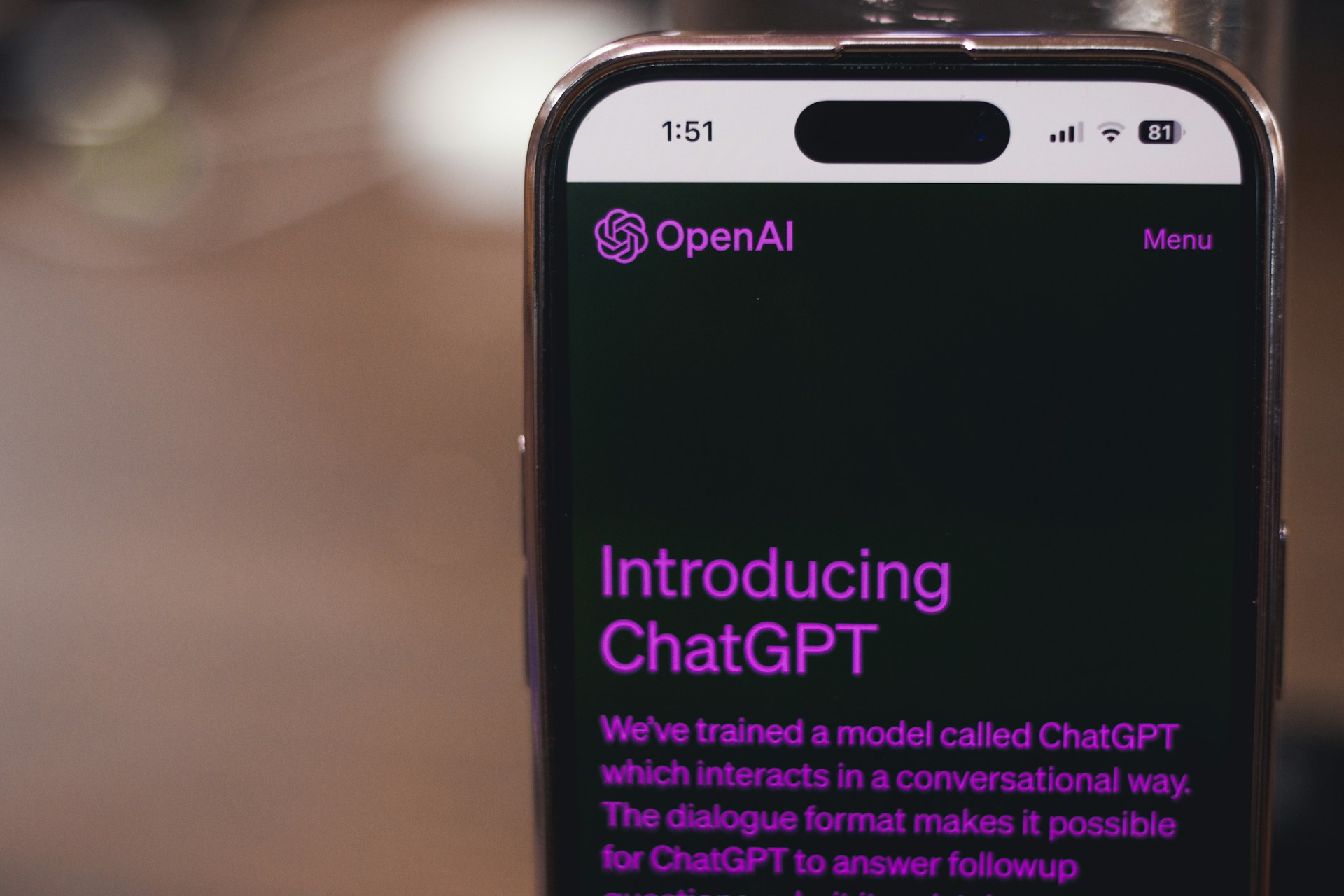

















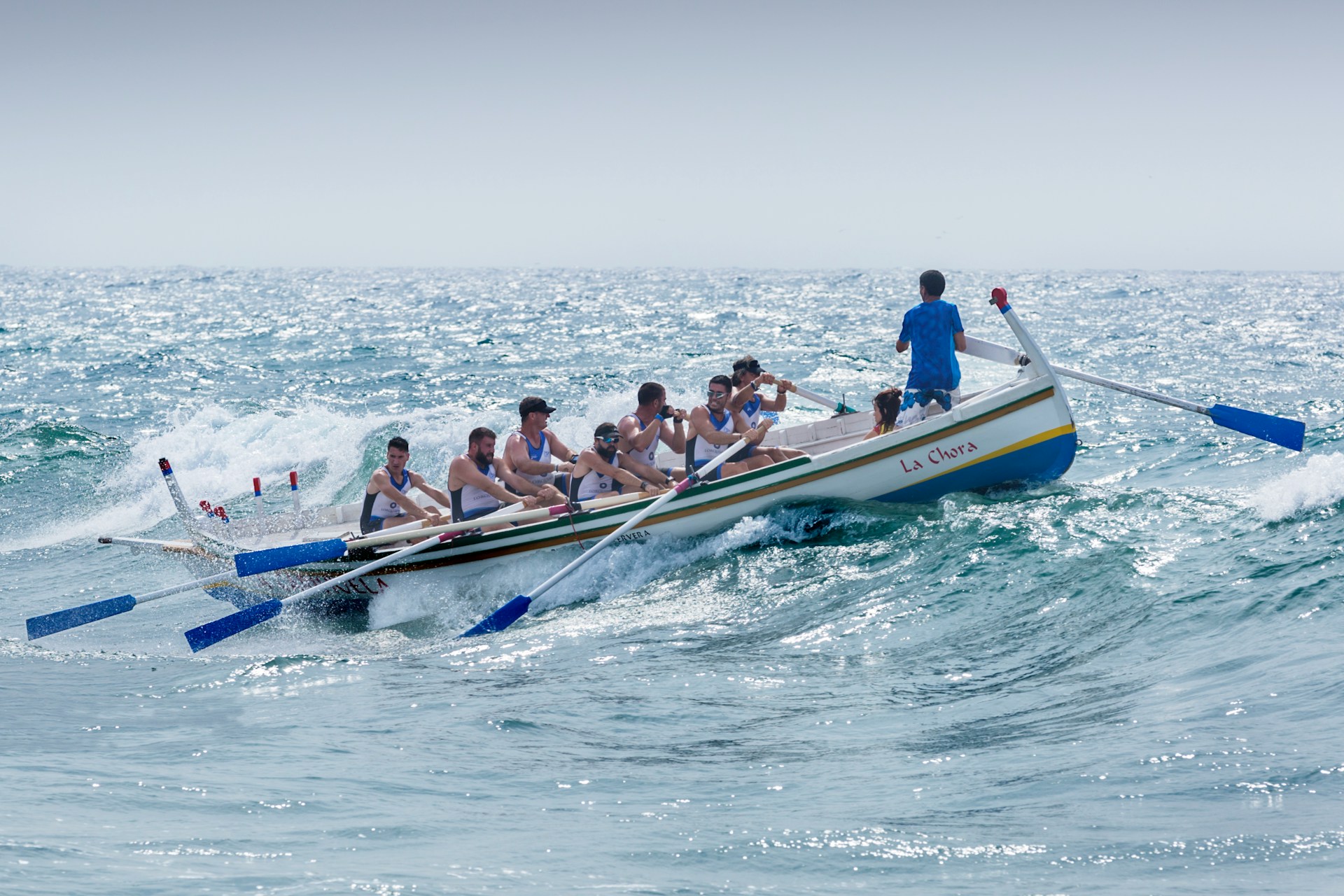









![[Essay] A strange A/B test](https://images.unsplash.com/photo-1545830384-3a2061eb44ed?ixlib=rb-4.0.3&q=90&fm=jpg&crop=entropy&cs=srgb&w=1920)